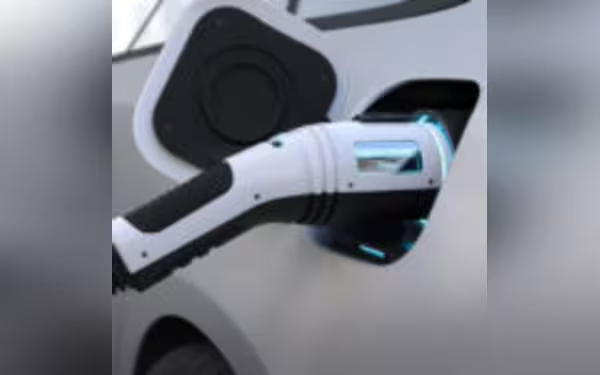Saturday, November 16, 2024 07:37 PM
Government Delays EV Tariffs Hinder Investment in Pakistan
- Government's delay in EV tariffs affects investors and consumers.
- Attock Petroleum Limited urges clear guidelines for EV charging.
- BYD uncertain about EV infrastructure timeline in Pakistan.
 Image Credits: pakistantoday
Image Credits: pakistantodayThe government's delay in establishing EV tariffs is impacting investment and consumer confidence in Pakistan's electric vehicle sector.
The transition to Electric Vehicles (EVs) is a significant step towards a cleaner and more sustainable future. However, the government's delay in establishing a new tariff structure for EV charging stations is causing concern among both consumers and companies eager to invest in this burgeoning sector. The National Electric Power Regulatory Authority (NEPRA) and the National Energy Efficiency and Conservation Authority (NEECA) are responsible for determining the EV charging tariff, but they have yet to reach an agreement, leaving many stakeholders in limbo.
Recently, Attock Petroleum Limited (APL) highlighted this pressing issue in a letter to NEECA. The letter referenced a sub-group meeting held on September 27, 2024, which aimed to finalize EV charging locations on motorways, national highways, and in major cities. During this meeting, Oil Marketing Companies (OMCs) were urged to support the government’s clean energy initiative by installing EV charging stations as part of their Corporate Social Responsibility (CSR) efforts.
APL has been a pioneer in the EV charging landscape in Pakistan, having launched its first charging station in July 2020. The company currently offers a 180 kW fast-charging service in Islamabad. However, despite multiple discussions, the Islamabad Electric Supply Company (IESCO) has not granted APL the necessary EV Charging Tariff A2(d). This refusal stems from the absence of a policy that allows for multiple electric meters with different tariffs at the same site, creating a significant barrier for companies looking to expand their EV infrastructure.
Adding to the complexity, BYD, a prominent Chinese automaker, has announced plans to manufacture EV variants in Pakistan. However, the company has expressed uncertainty regarding the timeline for a comprehensive EV charging infrastructure to be established nationwide. While IESCO has shown support for the EV initiative, it requires clear policy direction from NEPRA or NEECA to facilitate the operation of charging stations alongside traditional fuel facilities.
Currently, IESCO can provide the EV Charging Tariff A2(d) for standalone EV sites, but it cannot issue dual tariffs for facilities that offer both fuel and EV services. To address these challenges, a sub-committee led by the Additional Secretary II of the Ministry of Industries & Production is set to identify 40 potential EV charging locations across the country. APL has urged NEECA to issue clear guidelines to resolve the ongoing tariff issues, which would enable a broader EV infrastructure to flourish in Pakistan.
Last year, NEPRA drafted regulations for EV charging infrastructure, but disagreements among stakeholders have delayed their finalization. This situation underscores the urgent need for collaboration and consensus among all parties involved. As the world moves towards greener technologies, it is crucial for Pakistan to establish a robust EV charging network that not only supports the growing number of electric vehicles but also encourages investment in this vital sector. The future of transportation in Pakistan hinges on the government's ability to act decisively and implement a clear and effective tariff structure for EV charging stations.













